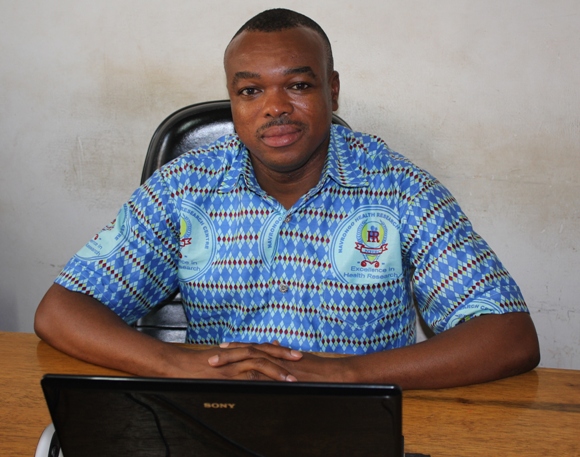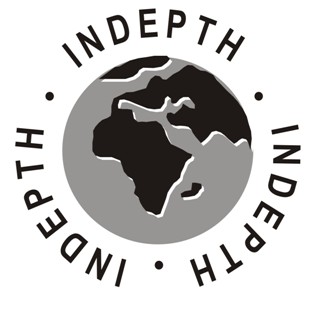Dear Centre Leaders,
Greetings from the INDEPTH Secretariat. We hope you have had a good week.
We have four items for your attention this week:
1. Call for New Member Centres - Data Repository of the INDEPTH Data Management Programme (IDMP)
The INDEPTH Data Management Programme (IDMP, formerly iSHARE2) encompasses all efforts of the INDEPTH Secretariat to support data collection, curation, management, quality control, data access and sharing.
Interested Centres should submit a letter of intent no later than 31st August to the INDEPTH Secretariat for attention Mr. Titus Tei (titus.tei@indepth-network.org).
Please see attached for details.
2. INDEPTH Small Grants Programme
Don’t miss this opportunity to apply for small grants from INDEPTH.
The overall goal of this INDEPTH Small Grants programme is to support research and research capacity strengthening among INDEPTH member centres in low- and middle-income countries. We fund collaborative projects among three or more INDEPTH member centres.
Please see attached for details.
3. Reminder: INDEPTH & WHO/TDR collaboration
Deadline for EOI is today, August 15.
Health systems/implementation research
Introduction
Improved understanding of social issues improves public health, health care delivery, and the design and uptake of new interventions and tools – whether by health and science professionals (e.g. use of a new diagnostic method) or by the community (e.g. use of bednets).
The social sciences applied to public health include a number of sub disciplines such as health economics, medical sociology, medical anthropology, social epidemiology and health geography. Gender has particular significance as a social issue with potential impact on health – society assigns different roles to men and women and, as a result, transmission dynamics of infectious diseases may disproportionately affect women or men, or lead to differential impact of disease according to gender.
Implementation research toolkit
Implementation research is conducted within routine systems and real life settings, removed from the controlled settings associated with other types of scientific research. This toolkit was designed to help people learn a standard process that would lead to results that could be compared across regions and countries. It is designed to help identify system bottlenecks and the stakeholders to be involved, formulate appropriate research questions, conduct the research and develop a plan for implementing the study results.
Who can use this toolkit?
• Health care service providers
• Programme staff
• Researchers
• Decision-makers
• Finance and administration officers
• Media
1) Have you been doing implementation research? Yes/No
2) If YES, please provide some examples
3) If either YES or NO, would you be interested in taking part in a training exercise?
4) Which of the modules described in the attached document are you most interested in, in order?
(Please see attached for the introduction to the modules of the Toolkit)
Please write to: martin.bangha@indepth-network.org by August 15.
4. Meet our graduates from the INDEPTH-funded MSc Programme at the University of the Witwatersrand, Johannesburg, South Africa
This series of short profiles is to introduce the more than 30 HDSS scientists who have been funded by INDEPTH to pursue the MSc in Population-based Field Epidemiology at the University of the Witwatersrand in Johannesburg. Scholarships for this programme have been graciously provided by Sida, Rockefeller Foundation and the Gates Foundation.
.
More information on the INDEPTH Scientific Development and Leadership Programme can be obtained by clicking on the following link: Leadership Programme.
Today, we feature, Paul Welaga of Navrongo HDSS, Ghana.
Full name: Paul Welaga
Position before the programme:Data Manager, Navrongo HDSS, Ghana
Current Position : Senior Research Officer/Data Analyst, Navrongo HDSS, Ghana
Student years at Wits University:2005 - 2006
Host HDSS centre for the field attachment: Africa Centre for Health and Population Study, South Africa
 Paul has nothing but praise for the master’s programme. Paul has nothing but praise for the master’s programme.
“The MSc. Programme at Wits University is a fantastic programme. Whether a student is strong in quantitative or not, after going through the programme successfully, the student would be equipped with the skills to do his/her basic analysis independently” he said.
He said students are taught how to design, conduct and carry out analysis of epidemiological studies while examining the strengths and weaknesses of each study design.
Additionally, students learn how to review articles by identifying the strengths and limitations of published articles and suggesting ways to improve on those articles through group discussions.
“I have been using the skills acquired during this master’s programme in managing and analysing both longitudinal and survey data, writing scientific reports, publishing articles, assisting staff in designing their studies and analysing data for publication in scientific journals.
I am actively involved in some of the INDEPTH cross site projects such as the Vaccination and child survival (OPTIMUNIZE project), Maternal and Newborn Health, Cause of Death Determination working groups and other INDEPTH activities” he said.
Paul has been involved in 12 scienfic publications in peer reviewed journals with at least five manuscripts under review. His research interest is on child health and survival with emphasis on evaluating the effects of vaccines on child health and survival.
He had his internship with the Africa Centre for Health and Population Study in KwaZulu Natal, South Africa.
“I would like to thank the then Director of Africa Centre, Professor Marie-Louise Newell, Caterina Hill, Herbst Kobus, Victoria Hosegood and the rest of the staff for their support during my internship there. I am grateful to the lecturers at Wits University for the good work that they did and continue to do. I thank INDEPTH Network for awarding me the scholarship to undertake this programme” he added.
Paul’s research topic was on "The impact of migration on adult mortality in rural South Africa: Do people migrate into rural areas to die?"
Thank you.
Have a restful weekend!
Becky Kwei
|




 Paul
Paul